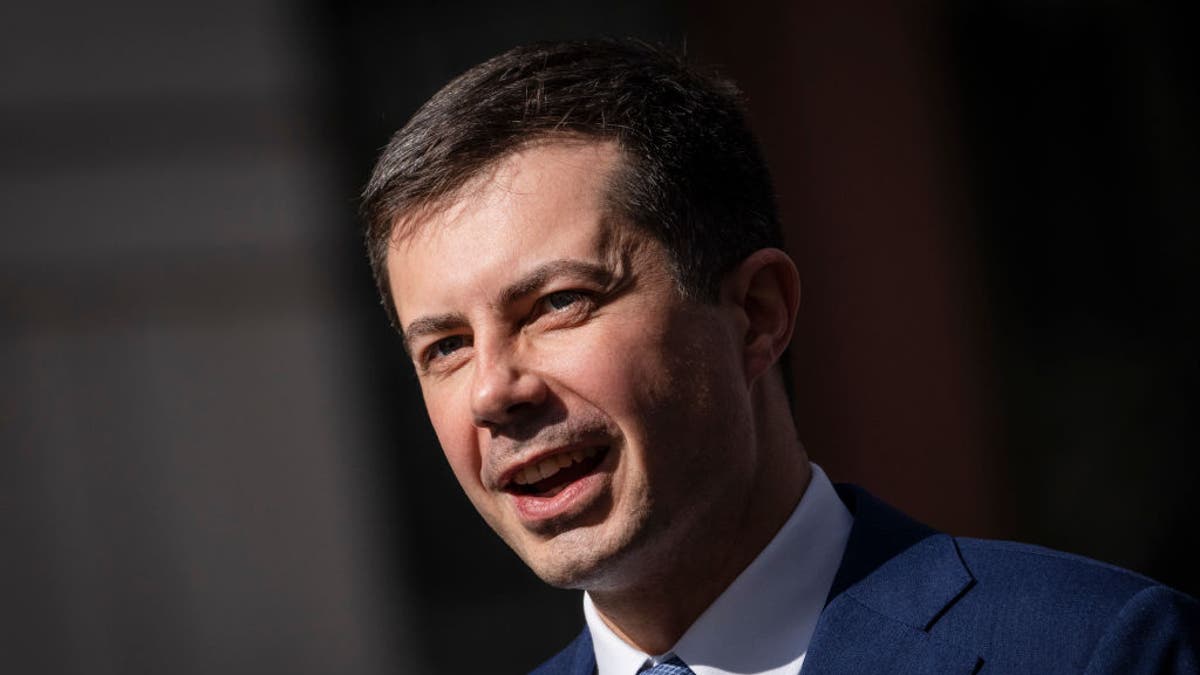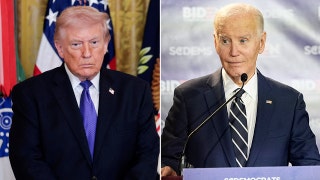Critics slam Buttigieg for 'all options are on the table' response to question about getting oil from Iran
Transportation Secretary Pete Buttigieg said Wednesday that "all options are on the table" during a discussion about oil prices after MSNBC's Stephanie Ruhle asked if President Joe Biden would consider "working something out with Iran."
Transportation Secretary Pete Buttigieg on Sunday highlighted what he said is the historic link between transportation and civil rights during a speech at the Edmund Pettus Bridge in Selma, Alabama, to mark the 57th anniversary of "Bloody Sunday."
"Now some are asking what transportation could possibly have to do with racial justice," Buttigieg said. "Some have been asking that very pointedly. So it's all the more fitting that we're here at this bridge, this piece of infrastructure that became a battleground in the struggle for equal rights; this place that reminds us how transportation and civil rights have always, always been related."
On March 7, 1965, approximately 600 civil rights marchers headed east from Selma on U.S. Route 80, but only as far as the Edmund Pettus Bridge when state and local lawmen attacked them with billy clubs and tear gas, driving them back. Dr. Martin Luther King Jr. led a symbolic march to the bridge two days later.
Buttigieg went on to also describe the slave ships that carried slaves to the New World, the "ferries and wagons of the Underground Railroad," the train in Plessy v. Ferguson and the bus Rosa Parks rode on as examples of transportation playing a key role in the history of civil rights in the U.S.

Pete Buttigieg, U.S. secretary of transportation, speaks during a news conference at the U.S. Department of Transportation (DOT) in Washington, D.C., on Thursday, Feb. 10, 2022. (Samuel Corum/Bloomberg)
"We are reminded again and again how deep is that relationship between the physical movement of human beings and the social movement to change this country," Buttigieg added. "And so it falls to all of us who work in transportation to carry that movement forward."
Buttigieg has faced criticism for tying issues of race into talk of the nation's infrastructure. In November, he raised eyebrows when he talked about the bipartisan infrastructure bill addressing racism in highways during a White House press briefing.

Secretary of Transportation Pete Buttigieg speaks during an event to discuss investments in the U.S. electric vehicle charging network, outside Department of Transportation headquarters on February 10, 2022, in Washington, D.C. (Drew Angerer/Getty Images))
CLICK HERE TO GET THE FOX NEWS APP
"I’m still surprised that some people were surprised when I pointed to the fact that if a highway was built for the purpose of dividing a White and a Black neighborhood, or if an underpass was constructed such that a bus carrying mostly Black and Puerto Rican kids to a beach, or that would have been in New York, was designed too low for it to pass by, that that obviously reflects racism that went into those design choices," Buttigieg said on Nov. 8, 2021.














































